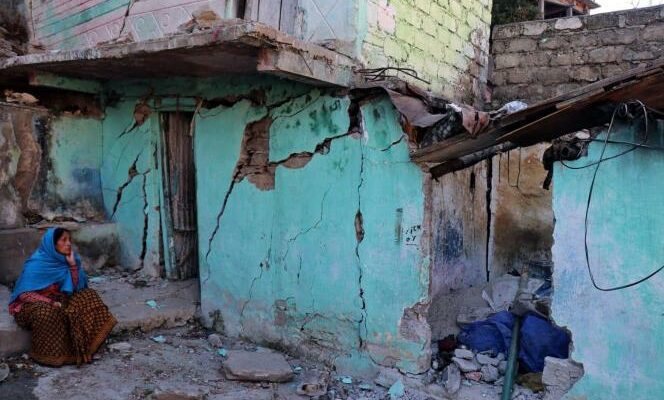Joshimath is in perdition. This city of 20,000 inhabitants located on a slope, at an altitude of nearly 1,900 meters in Uttarakhand, in the heart of the Indian Himalayas, is literally in danger of collapsing, due to land subsidence. A total of 678 houses and hotels already have huge cracks that are getting bigger every day, the roads are cracked like after an earthquake. All construction activities around the city have been stopped.
Residents began to be evacuated after a temple collapsed on Friday January 6. Many had to sleep homeless in the freezing cold of winter.
Narendra Modi called an emergency meeting and set up a committee of experts to determine the causes of this phenomenon. If the Indian Prime Minister is following the situation closely, it is because Joshimath is located on the route of Hindu and Sikh pilgrimages. Tens of thousands of devotees visit Badrinath and Him Kund Sahib temples every year. The Indian government, led by Hindu nationalists, has embarked on rampant infrastructure development to foster religious tourism. He built despite the advice of experts, on unstable ground, roads, dams, buildings, tunnels, to accommodate the huge flow of pilgrims and tourists.
Construction of a hydroelectric dam
The inhabitants had alerted the authorities for several months on the appearance of cracks, and the runoff of muddy water. They sent several letters in December to the head of the regional government, Pushkar Singh Dhami, to warn of the repercussions of the explosions carried out nearby. But the warnings went unanswered.
A Uttarakhand disaster management official led by the ruling Bharatiya Janata Party, BJP, blamed the cracks on a faulty drainage system, which caused water to seep under houses and lead to their sinking. But residents and environmentalists question the enormous work undertaken for the construction of a hydroelectric dam (Tapovan-Vishnugad), on the Dhauliganga river, which requires digging, with explosives, a 12-kilometer tunnel in the mountain under Joshimath.
The independent experts also underline the role of the development of a highway (Char dham), launched in 2016 and intended to connect the various Hindu pilgrimage sites and facilitate the transport of soldiers to the Chinese border. In addition to being a religious and cultural city, Joshimath hosts an important military base.
You have 51.46% of this article left to read. The following is for subscribers only.
